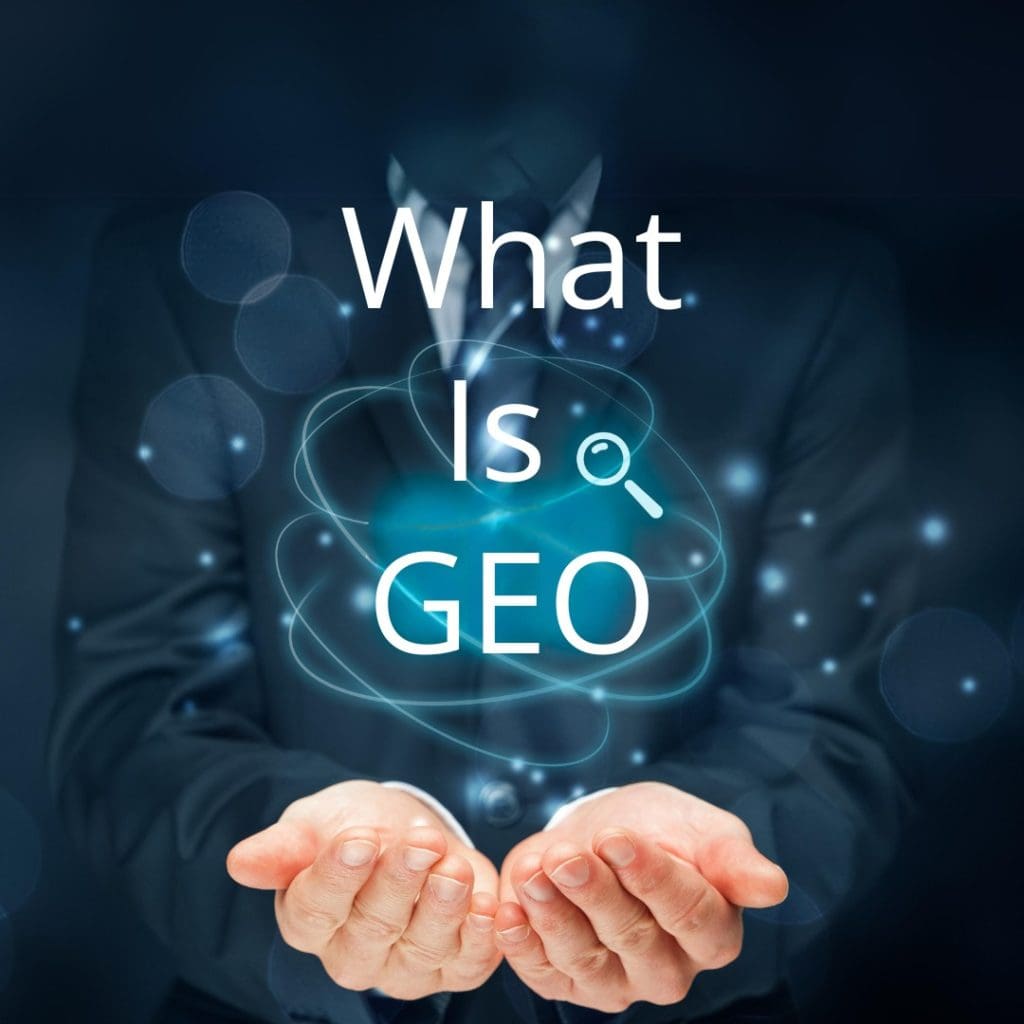In today’s ever-evolving digital marketing landscape, staying on top of the latest trends and techniques is key to success. One of the most exciting recent developments is Generative Engine Optimisation (GEO). This is set to change how we think about search engine optimisation (SEO) by combining traditional strategies with more advanced methods of understanding online content. This blog explores what GEO is, how it works, and why it’s essential for anyone looking to strengthen their digital marketing strategy.
The Evolution of Search: From SEO to GEO
To understand Generative Engine Optimisation, it helps to first look at how search technology has evolved:
SEO (Search Engine Optimisation)
SEO has been the foundation of digital marketing for years, helping websites rank higher on search engine results pages (SERPs) and attract organic traffic. Traditional SEO focuses on understanding search engine algorithms and using keywords, meta tags, backlinks, and other strategies to improve visibility.
SGE (Search Generative Experience)
More recently, search technology has advanced to provide users with more relevant and context-based answers to their queries. This means that instead of simply listing websites, search engines now offer more interactive and user-friendly responses.
GEO (Generative Engine Optimisation)
GEO takes things a step further by adapting content to align with how modern search engines understand and prioritise it. It combines the traditional SEO approach with a deeper understanding of how search engines interpret content to ensure your website is not only discovered but also ranked more favourably.

What Is Generative Engine Optimisation (GEO)?
Generative Engine Optimisation focuses on improving online content to achieve better visibility in search results. Instead of just offering a list of links, GEO ensures that your content is presented in a way that is easily understood and engaging for users.
Key Features of GEO
- Content Adaptation: GEO involves tailoring your writing style and structure to meet modern search standards.
- Direct Answers: Content should aim to directly answer user queries, making it more likely to be favoured by search engines.
- Structured Information: Well-organised content is easier for search engines to interpret and rank highly.
Strategies for Successful GEO Implementation
To effectively implement Generative Engine Optimisation, consider the following strategies:
- Keyword Enhancement: While traditional SEO emphasises keyword use, GEO focuses more on natural language flow. Ensure relevant keywords are naturally woven into your content.
- Cite Reliable Sources: Increase your content’s credibility by referencing authoritative sources. This not only backs up your points but also strengthens the overall quality of your writing.
- Incorporate Statistics: Using data to support your arguments adds credibility and makes your content more persuasive.
- Include Expert Quotes: Insights from industry professionals enhance your content’s authority and add value for readers.
- Simplify Complex Concepts: Break down complicated ideas into simple terms to boost engagement and make your content more accessible.
- Fluency Optimisation: Ensure your content flows smoothly and is error-free. Well-written content improves readability.
- Use Unique Vocabulary: Stand out by using specific and thoughtful language.
- Showcase Expertise with Technical Terms: Use industry-specific terminology when necessary to demonstrate your knowledge to a targeted audience.
- Establish Authority: Build trust by using persuasive language and authoritative claims.
Measuring GEO Success
The metrics for measuring success in Generative Engine Optimisation differ from those used in traditional SEO. Key performance indicators include:
- Position-Adjusted Word Count: This metric assesses how well your content ranks against competitors.
- User Feedback: Evaluating how users engage with and respond to your content gives valuable insights into its effectiveness.
Research shows that applying GEO strategies can result in a significant increase in visibility, with impressions improving by up to 30%.

The Future of Digital Marketing with GEO
As search technology continues to develop, mastering Generative Engine Optimisation will be essential for marketers who want to stay ahead. By using GEO techniques, you can:
- Improve visibility in search results
- Boost user engagement through relevant, comprehensive content
- Build your brand’s authority by consistently offering high-quality information
- Achieve better results from your digital marketing efforts
Where do we go from here?
Generative Engine Optimisation represents a major shift in how we approach digital marketing and SEO. By blending traditional techniques with more refined content strategies, GEO allows marketers to create material that appeals to both search engines and users.
As you navigate the changes brought about by AI, remember that the goal is to produce high-quality, authoritative content that meets the needs of both search engines and people. The journey into GEO has just begun, and its evolution promises exciting opportunities for those who are ready to adapt.
If you’re looking to improve your online presence, consider enrolling in a digital marketing programme that covers both SEO and GEO strategies. Take the next step in your digital marketing journey today!
Written by Lasma Zorgenberga


